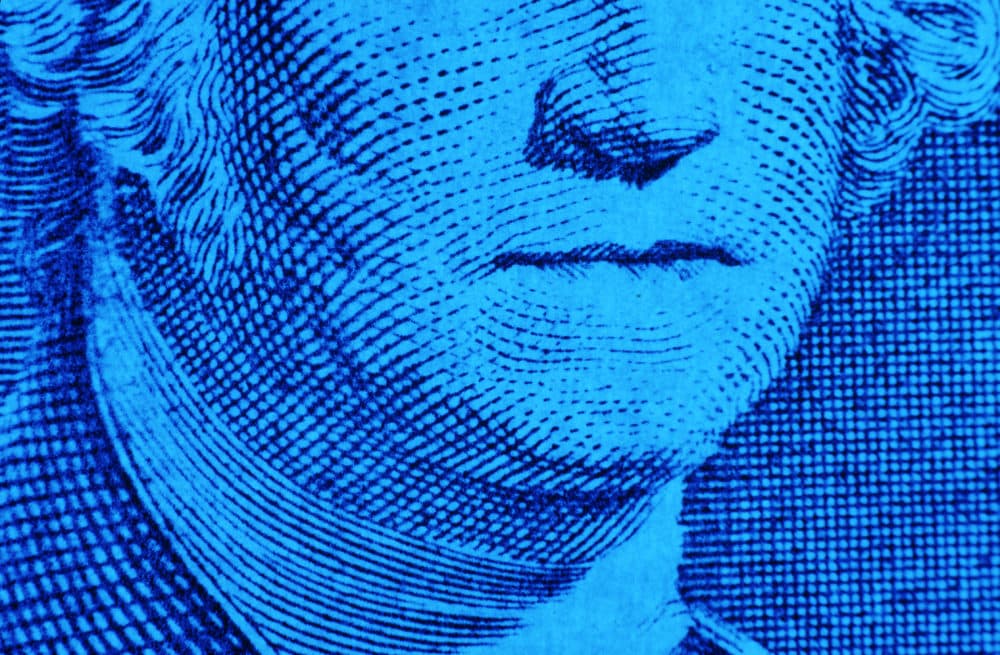Advertisement
Commentary
Capitalism Isn’t Racist. We Are

“There is no capitalism without racism,” says Angela Davis. The activist and academic boasts a communist past, but on this one, she’s hardly radical.
The idea that capitalism is incurably racist down to its profit-counting bones was scripture in certain progressive precincts even before George Floyd’s murder opened a lens on bigotry beyond policing. A recently released book by another scholar makes the capitalism equals racism case.
That white capitalists have exploited people of color for centuries is indisputable, from Dixie’s plantations and land theft under Jim Crow to redlined neighborhoods and job discrimination today. Instead of reopening all those capitalist businesses shuttered by COVID-19, should we abolish them?
No. Anti-capitalists ignore a sadder, inconvenient truth. To tweak Davis to be more accurate, there is no economic system, period, without racism. And there is a lot we can do to dilute bigotry in our system.
The pioneering Black studies scholar Cedric Robinson found that capitalism evolved from Western societies already steeped in racial discrimination; feudal Europe wasn’t humming “Kumbaya.” Nor, for that matter, were African kings who kept slaves to strut their wealth and power, before 18th-century European traders waded ashore and remade slave-owning into an industrial-scale profit machine.
My point isn’t to deny U.S. capitalism’s systemic racism. It is, rather, to snuff out knee-jerk, utopian notions that racism is anything less than a universal infestation among different economies and cultures.
As Boston University researcher Jim Bessen, who has studied racial wage disparities, told me, “A more pessimistic view might say civilization may inherently introduce tribal antagonisms that lead to racism.” And not just Western civilization.
The stray Marxist may look for racial and ethnic harmony in self-declared workers' paradises such as China. The million Uyghurs and other Muslims herded into concentration camps by Xi Jinping likely would beg to differ. Their plight is the latest link in an historical chain of racism in the People’s Republic.
Socialist regimes elsewhere flunk the brotherhood test, too. Only recently, Cuba began inching beyond shunting Black Cubans to the margins of political and economic equality. Fidel Castro may have declared his nation delivered from racism by his revolution, but a young Cuban activist in 2018 dissented: “To me, Cuba is very, very racist, one of the most racist countries in the world.”
Perhaps anti-capitalists think the lava of race hate has cooled in the northern climes and egalitarian ethos of nations practicing democratic socialism. (Which, the name notwithstanding, is actually capitalism with sturdier regulatory and safety-net guardrails than ours. But never mind.)
Advertisement
Alas, if they’re gazing at Scandinavia or Canada, they need to seek Eden elsewhere. In recent years, the U.N. professed itself “concerned” about Swedish racism towards Africans, Jews, Muslims and Roma. A journalist who has lived in Denmark finds economic inequality for non-western immigrants and racist newspaper cartoons blemishing Bernie Sanders’s beloved Denmark, while Norway grapples with Islamophobia.
Canada meanwhile repents a history of “notoriously abusive schools for Indigenous children” and “pollution of [Native] traditional territory.”
My point isn’t to deny U.S. capitalism’s systemic racism. It is, rather, to snuff out knee-jerk, utopian notions that racism is anything less than a universal infestation among different economies and cultures. Circling the world with open eyes and mind confirms professor and New Yorker contributor Nicholas Lemann’s observation that “it’s possible to be anti-capitalist without being anti-racist, and anti-racist without being anti-capitalist.”
Indeed, Martin Luther King, Jr. challenged capitalism, but the civil rights martyr’s enthusiasm seems to have been for democratic socialism, which, as I mentioned, would make him an uber-progressive capitalist, not the raging commie of J. Edgar Hoover’s fevered nightmares.
"It’s possible to be anti-capitalist without being anti-racist, and anti-racist without being anti-capitalist."
Nicholas Lemann
We abolished slavery to make capitalism less racist in the 19th century. In the 21st, It doesn’t take a democratic socialist to map the next steps on that far-from-finished journey. Bessen favors one surgically precise intervention: ban employers from inquiring about job applicants’ salary histories. Since past discrimination suppresses Blacks’ wages, knowing those wages allows employers to lowball proffered salaries to minority hires. States with bans have narrowed the racial wage gap, his research shows.
That’s just for starters. We also could create public works jobs in Black neighborhoods ravaged by the evaporation of employment documented by scholar William Julius Wilson; pay for healthy food markets in food deserts, at a time when 14 million American children aren’t getting enough to eat; make public colleges tuition-free, a ticket to the middle class for disadvantaged people of all races; and enact Obamacare for All to begin addressing racial health care disparities. And elect more compassionate leaders than our incumbent president and his congressional bootlickers.
None of this would make us a less capitalist society. It would make us a less racist one.
Forty years ago, an academic study asked, "Does Socialism Mean Greater Equality?" If only the world were so simple. Focused on that era’s leading socialist power, the Soviet Union, the article answered its own question: nah.
That answer hasn’t changed.
